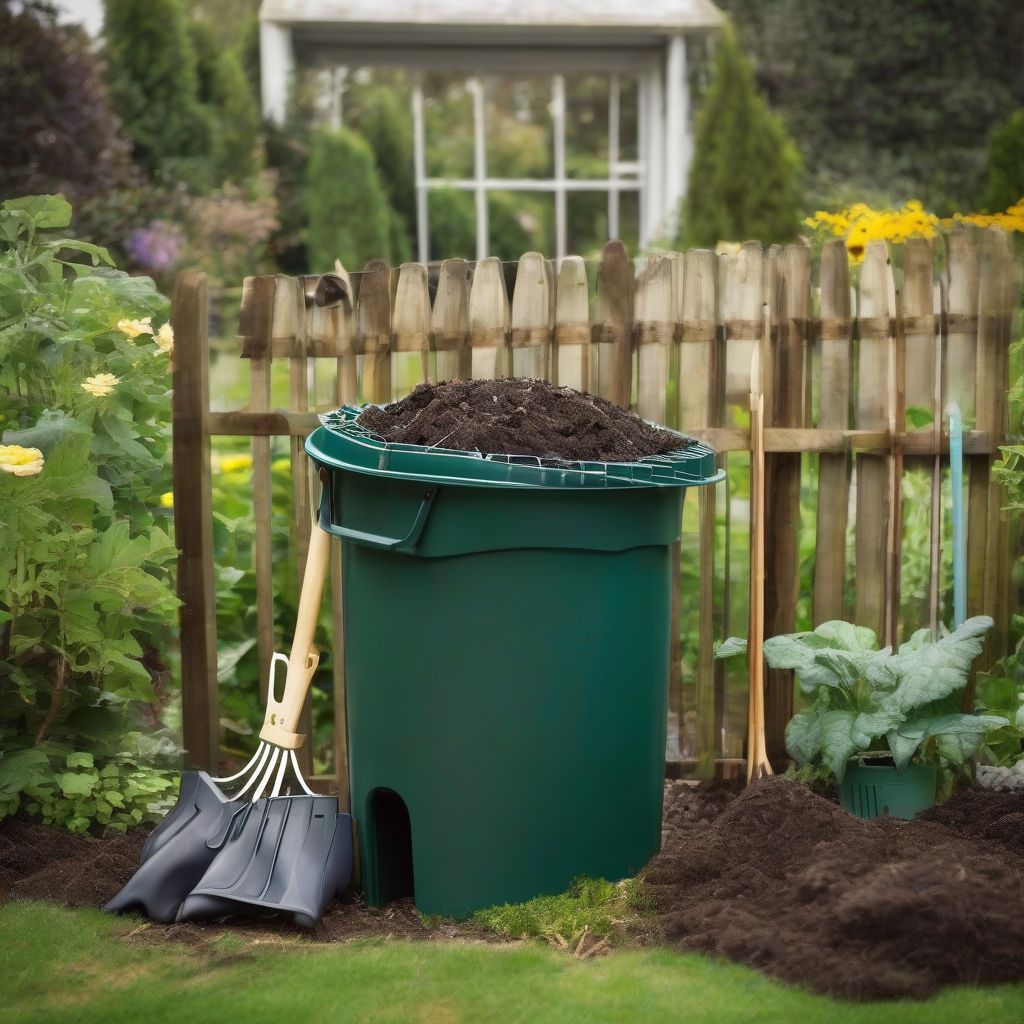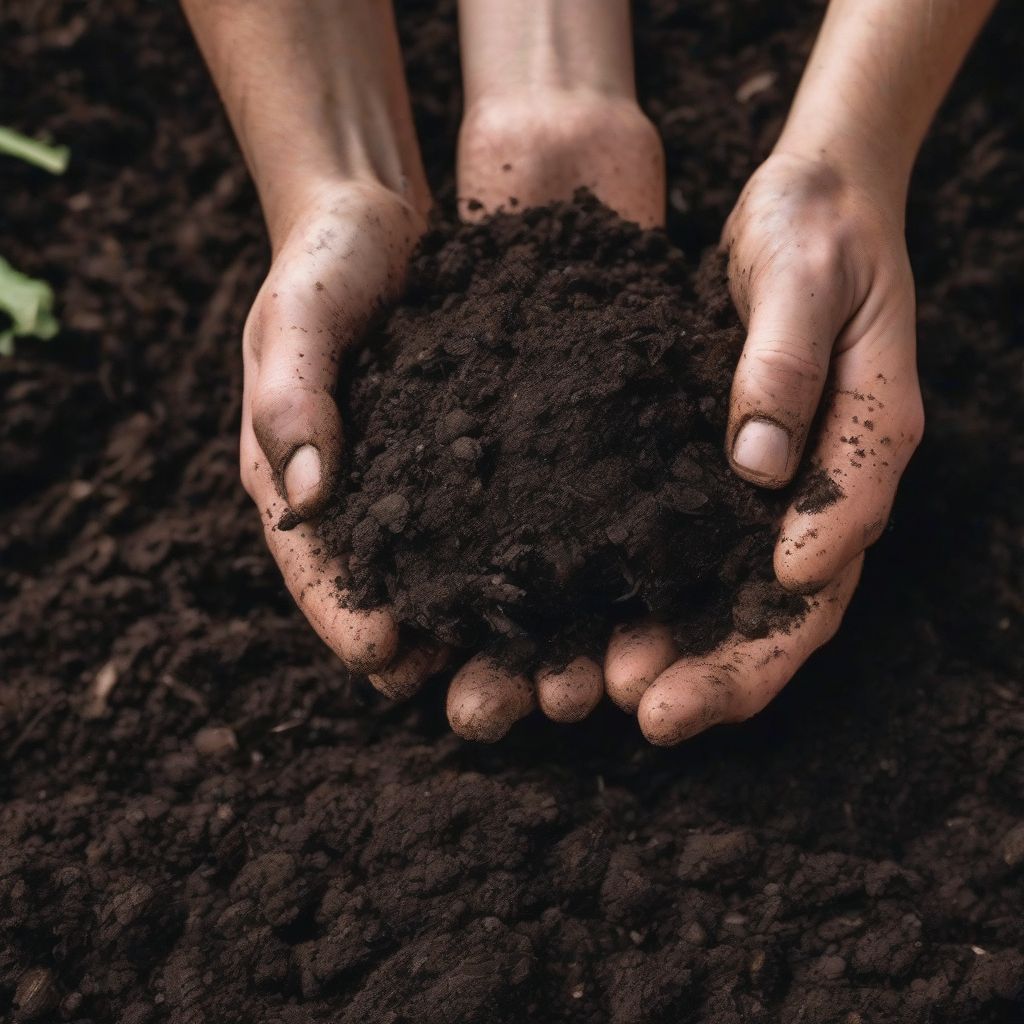Imagine stepping into your garden, a cup of herbal tea warming your hands, and breathing in the earthy aroma of nutrient-rich compost. This dream is easily achievable with the right composting setup. As a nutritionist and meal-planning coach, I understand the importance of nourishing your body with wholesome food. But did you know you can also nourish your garden with the goodness of compost?
Composting, much like meal prepping, requires the right tools for success. But don’t worry, it’s easier than you think! This guide will equip you with the knowledge to build a thriving compost pile, turning your kitchen scraps into gardening gold.
Essential Composting Tools for Beginners
Starting your composting journey doesn’t require fancy equipment. Here are the must-haves:
1. Compost Bin: The Foundation of Your Composting System
A compost bin keeps everything contained and helps maintain the ideal environment for decomposition. You have several options:
- Tumbler Composters: Ideal for small spaces, tumblers make turning your compost a breeze, speeding up the process.
- Stationary Bins: These bins are budget-friendly and come in various materials like plastic or wood.
- DIY Solutions: Get creative and repurpose old pallets or trash cans into functional compost bins.
2. Gardening Gloves: Protect Your Hands While Handling Compost
Compost, while beneficial, can be messy! Invest in a good pair of gardening gloves to keep your hands clean and protected.
3. Pitchfork or Garden Fork: The Ultimate Composting Companion
A sturdy pitchfork or garden fork is your go-to tool for:
- Turning your compost: Regular turning introduces oxygen and speeds up decomposition.
- Aerating your pile: Creating air pockets prevents foul odors and promotes healthy microbial activity.
- Harvesting finished compost: Easily separate ready-to-use compost from your pile.
 Compost Bin and Tools
Compost Bin and Tools
Level Up Your Composting Game: Advanced Tools
Ready to take your composting to the next level? These tools can further optimize your composting system:
1. Compost Thermometer: Monitor the Heat and Ensure Optimal Decomposition
Maintaining the ideal temperature range (130-160°F) is crucial for efficient composting. A compost thermometer helps you:
- Track the composting process: Identify if your pile is heating up properly or needs adjustments.
- Troubleshoot issues: Diagnose problems like excessive moisture or lack of nitrogen based on temperature readings.
2. Chipper Shredder: Transform Yard Waste into Compostable Material
A chipper shredder is a game-changer for handling large volumes of yard waste like branches and twigs. By breaking down these materials into smaller pieces, you:
- Accelerate decomposition: Smaller pieces decompose faster than larger chunks.
- Improve the carbon-to-nitrogen ratio: Woody materials add valuable carbon to your compost pile.
3. Compost Aerator: Enhance Oxygen Flow and Speed Up Composting
A compost aerator, whether a handheld tool or a rotating aerator for tumblers, improves air circulation within your compost pile. This:
- Boosts microbial activity: Oxygen is essential for the microorganisms that break down organic matter.
- Reduces unpleasant odors: Proper aeration minimizes the chance of smelly anaerobic decomposition.
Common Composting Questions Answered
Navigating the world of composting can be overwhelming. Here are answers to frequently asked questions:
1. What can I compost?
You can compost a wide range of materials, including:
- Fruit and vegetable scraps: Peels, cores, rinds, and overripe produce are all compostable.
- Yard waste: Grass clippings, leaves, small branches, and plant trimmings are valuable additions.
- Paper products: Shredded newspaper, cardboard, paper towels, and napkins can be composted.
- Coffee grounds and tea bags: These nitrogen-rich materials provide essential nutrients for your compost.
2. How often should I turn my compost?
Ideally, aim to turn your compost every 1-2 weeks. However, the frequency can vary depending on factors like:
- Compost bin type: Tumblers require less frequent turning than stationary bins.
- Season: Composting slows down in colder months, so less turning is necessary.
- Moisture levels: If your compost feels too wet, increase turning to introduce more air.
3. How do I know when my compost is ready?
Finished compost has a dark brown, crumbly texture and an earthy aroma. It should be difficult to identify the original materials.
 Finished Compost
Finished Compost
Conclusion: Embrace the Composting Journey
Composting is more than just a gardening practice; it’s a sustainable lifestyle choice that benefits your garden, reduces waste, and connects you with nature’s cycles. By investing in the right tools and understanding the basic principles, you can transform kitchen scraps into gardening gold.
Remember, every piece of food you compost is a step towards a healthier planet and a more abundant garden. So, start composting today and experience the joy of nurturing your plants with the goodness of nature’s recycling system.
[amazon bestseller=”compost-bin”]
